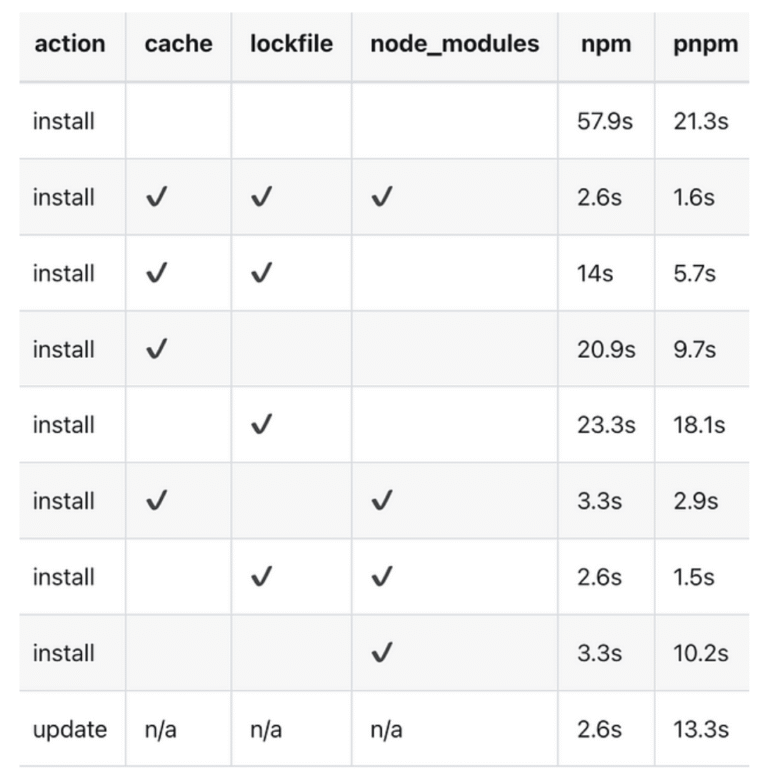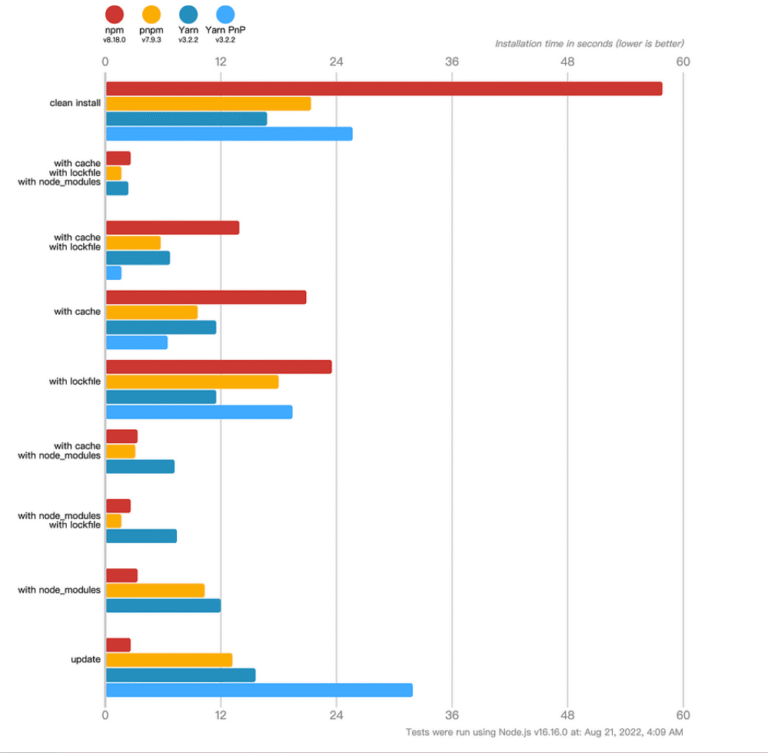What is PNPM?
PNPM is an alternative package manager for Node.js which stands for “Performant NPM”.
The main purpose of PNPM is to hold all the packages at a global (centralized) store and use them if needed by other projects too by creating hard links to it.

Installation
Using npm by running the command:
npm install -g pnpm
We can test whether PNPM installed successfully by running:
pnpm -v
Compatibility
The NPM version that supports Node.js depends on the version you are using. You can check the Node.js version of NPM installed on your system by running the command npm –v in your terminal. In comparison, PNPM may support all versions of Node.js.
Performance
PNPM is faster than NPM, particularly for projects with many dependencies. Because, PNPM stores files in a virtual shop that keeps them from loading the same package more than once. PNPM also improves the installation process with multiple caching and installation.
File Space
Because of the highly effective package installation procedure, PNPM uses less disk space than NPM. For smaller apps, the disk space reductions may not be highly substantial.
Security
PNPM and NPM have security techniques that ensure packages are loaded privately and safely. NPM has a feature known as a security audit that checks packages for identified security flaws. PNPM has an associated feature known as PNPM audit that does the same thing.
PNPM is Faster
PNPM is faster than other dependency managers because its installation has no steps that can’t be done simultaneously. Each dependency has its stage, and the next stage begins as soon as each dependency is installed.

Pnpm is the yellow part that installs packages much faster than npm in most cases. It will also install packages twice as fast as npm.
Let’s look at the benchmark information, which compares PNPM and NPM:


Overall, PNPM is still much faster than npm when installing packages.



